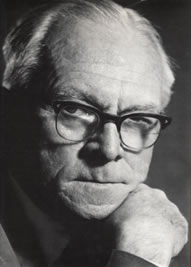
"But my beauty was already created, in that place where I was born." --Towards the Mountain
Alan Paton's intense, overflowing love of his place, balanced by an openness toward and attentiveness to "the other" that also inhabits his place, is tied up with his Christianity, I think. Just as Christianity has a consistent emphasis on the need for respect of one's parents, so this command for respect must extend, also, to one's land. This is, first of all, a recognition of the state of man--that he is social, born into a community and place that are tied up in one another. Additionally, this is deeply conservative, for any change that man makes, he must make within a particular environment, so that change must make sense in regard not only to himself, but also in regard to his land.
Besides pointing to the social nature of man, a love of place also is the path to loving God. When Christianity maintains that without loving your brother, whom you can see, you cannot love God, whom you cannot see, it is not a commentary on the connection between vision and love. For if it were even possible to love God without loving your neighbor, then it would certainly be easier--it is easier to love that which is perfect than that which is flawed. Rather, this is a descriptive statement about how love works. We love that which is abstract through the particular things that we come in contact. We love God through loving our brothers. We love God through loving the place into which He created us and in which we work (which is, itself, another sort of love). The ability to see the beautiful in your place is a great ability, and recognizing your own limitedness is connected to this.

No comments:
Post a Comment